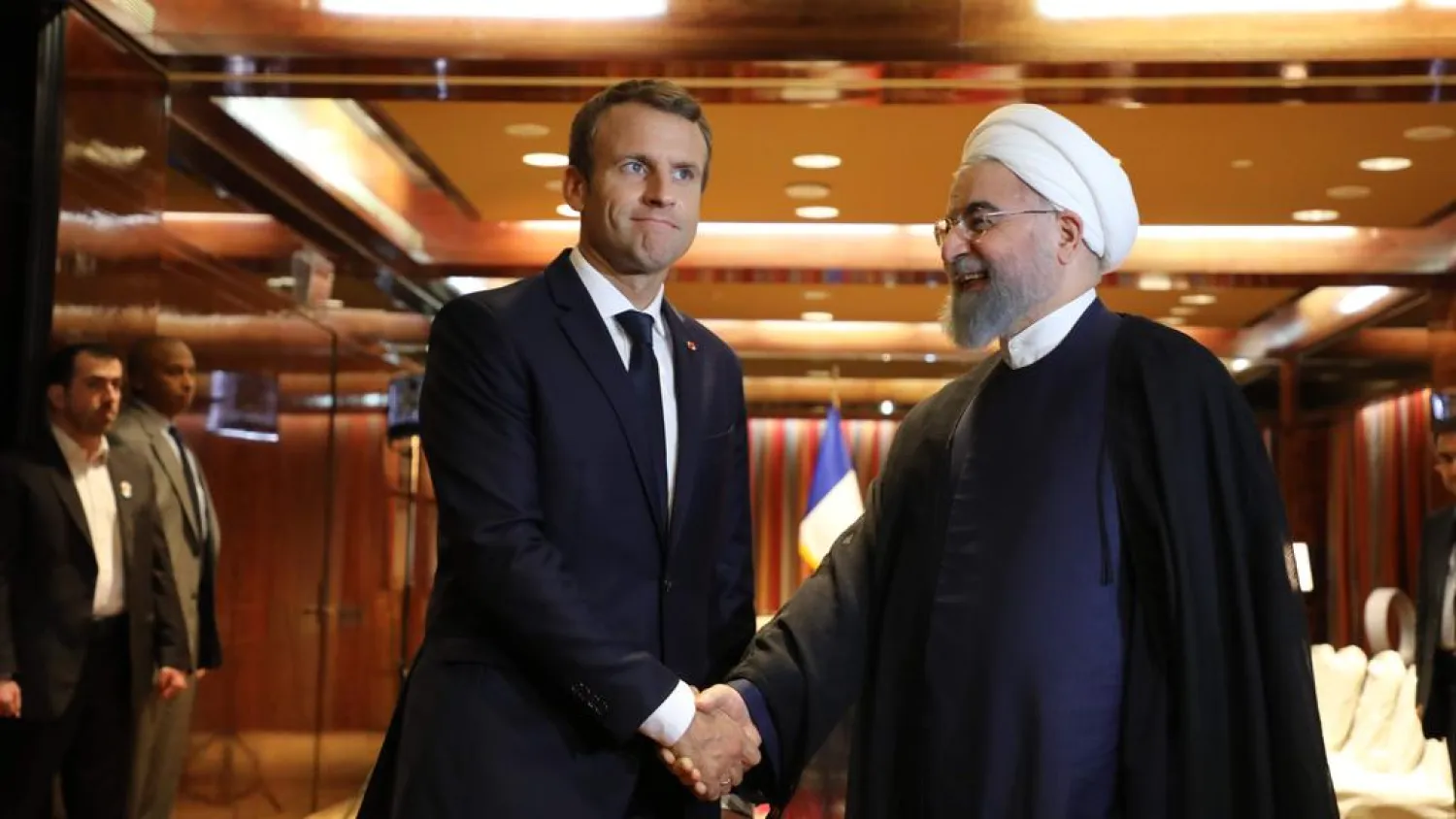There is no prospect signaling that the French-Iranian relations could see possible breakthroughs following tension that erupted in the past few days due to the strong reactions expressed by Iranian officials, including Iranian Supreme Leader's senior advisor for international affairs Ali Akbar Velayati and commander of the Revolutionary Guard Corps (IRGC) Mohammad Ali Jafari, concerning Paris’ position from several disputed files with Tehran, such as the Nuclear Deal, the Iranian ballistic missile and Tehran’s policies in the region.
French President Emmanuel Macron’s comments on Wednesday from Abidjan further complicated relations between the two countries and made the upcoming official visit of the French president to Tehran early next year, less possible.
In an interview with France 24, Macron said there is a need to “discuss a strategy concerning the position of Iran in the region and to limit the current destabilizing activities of Tehran against a number of countries.”
Based on the presidential approach, it is clear that the French President holds Tehran responsible for those activities, which Macron says should stop.
The French leader had previously threatened Iran with sanctions if it continues to exert its worrying policies in the region, particularly through the files of the ballistic and Tehran’s regional policies.
Based on all those disputed issues, the French presidential visit to Tehran seems to be postponed, if not forgotten.
In his interview with France 24, Macron said he will visit Iran “at the right moment,” after he ensures there is a discussion and strategic accord over Tehran’s ballistic missile program and its destabilization activities in several regional countries.
French official sources told Asharq Al-Awsat that Macron would not travel to Iran if he does not find a justification for the visit.
“Until now, the Iranians still refuse all the French proposals related to the completion of the Nuclear Deal, or discussion of the ballistic missile file, in addition to Iran’s behavior with the regional explosive files, including Yemen, Syria, Iraq and the security of the Gulf,” the sources said.
They said, “Iran threatens the regional strategic balance,” adding that the absence of equilibrium opens the door to several uncontrollable adventures in the region.
“Saudi Arabia is not the country threatening Iran,” the sources said. “Despite the disputes, Paris wants to continue an honest dialogue with Tehran.”
The sources said that Iran better accepts Paris’ proposals to prevent itself from facing threats from more than one front.









